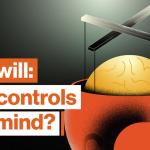Consciousness and Neuroscience in a Physical World
Did I lose my conscious mind to Science?
SR 2002

Did I lose my conscious mind to science? Yes, I did. I bet you did too. You might not even realize that your mind is missing.
While your alarm system was temporarily off, thieves broke into your home and stole something most valuable. They stole your conscious mind. Now you have lost it. It’s gone. No property insurance will pay for its replacement.
Who were these midnight thieves? Were they dressed in dark clothes and covering their faces with knit masks? No. They were wearing white lab coats. What were their weapons? They were armed with classical physics, scientism, eliminative materialism, and neurocentrism.
By defining the whole of reality strictly in terms of physical entities externally relating to one another by efficient causation, your and my consciousness has been robbed of its reality and fenced to now embarrassed substance dualists.
Not only our consciousness was stolen. So also our free will and even our selfhood have been removed. There is no room in a strictly objective cosmos for your or my subjectivity. Your and my interiority is but an epiphenomenal delusion, a stubborn memory of a possession now lost. So say the thieves.
In what follows in our investigation of consciousness and neuroscience, I plan to become a detective. I’ll find the culprit. I’ll retrieve what is lost. Here in this post, I’ll return your consciousness. You will retrieve your mind. In future posts, I’ll go after freedom and selfhood as well. [1]
Who are the thieves who stole my consciousness?
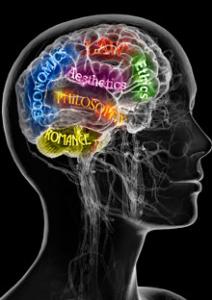
Did I lose my mind to science? Actually, it was stolen. Who are the thieves? The thieves are the scientific materialists who have eliminated from our cosmology everything that is mental, conscious, meaningful, spiritual, and ideal. You’ll recognize the thieves when you hear them mutter, “the mind is only the brain, ya know.”
Not much sleuthing is required to discover that it is our laboratory brain researchers in cahoots with neurocentric philosophers who broke in to rob us of our consciousness. These perps are armed with mind-brain identity theory. This theory applies eliminative materialism to human consciousness. “According to the common neuroscientific view, the mind is the creation of the brain,” writes University of Oregon neuroscientist Marjorie Hines Woollacott. “In other words, material processes in the cerebral cortex—somehow!—generate thoughts and feelings” (Woollacott, 2017, p. Kindle 1153). It is the material brain that determines the delusion of a conscious mind, allegedly.
Can we reduce your and my consciousness to physical neuronal firings? This is what geneticist Francis Crick, winner of the 1962 Nobel Prize in Physiology and Medicine, concludes. “You’re nothing but a pack of neurons” (Crick, 1994, p. 3). Notice the nothing-buttery. You are “nothing but” neurons. I lost my mind to science. Woe is me.
Neurocentrism and its critics
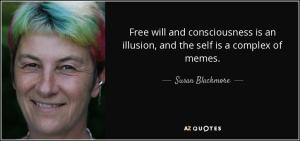
The thief is a philosophical doctrine, even if touted by actual scientists. The doctrine of neurocentrism is “the view that human experience can be best explained from the predominant or even exclusive perspective of the brain,” according to Sally Satel and Scott Lilienfield (Satel, 2013, p. 35). In short, because it does not exist, the conscious self cannot become a topic for scientific research.[2]
By reducing consciousness to brain process, the laboratory scientist can now study it. “Consciousness as a whole can be seen as a complex neural pattern that misperceives some of its own highly complex structural properties as monadic and qualitative” Kristjan Loorits says in Frontiers. The burglar alarm is ringing obnoxiously.
University of California physicist Henry Stapp jumps when he hears the burglar alarm. Neurocentric determinism is not based on empirical conclusions, complains Stapp. Rather, it is based on retrograde physics, on the pre-quantum worldview of Newton. “Contemporary neuroscience and philosophy of mind largely continue to base their quest to understand human consciousness on the inadequate nineteenth century mechanical conceptualization of reality, which contrary to standard quantum mechanics, leaves our consciousness completely out of the causal dynamics” (Stapp, 2017, p. 63).
Stapp cheats. He leaps beyond the classical physics of Newton to contemporary quantum physics, where it’s much easier to integrate observer with what is observed. Be that as it may, Stapp makes it clear that eliminative materialism in its neurocentrist form is ideology. It’s not science.
In our investigation into consciousness and neuroscience, let’s try to distinguish between laboratory research and neurocentric philosophy. The former wants to learn how the brain works. The latter is a materialistic ideology. It is the ideology of scientific materialism that is bent on stealing our conscious mind and fencing it to the brain.
I lost my mind to science. So, what’s the problem?
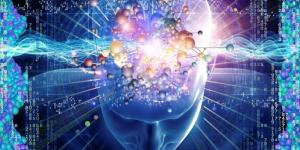
So, what’s the problem again? Our daily experience of our conscious mind engaging the world beyond the mind is fundamental, indubitable, undeniable. Consciousness is a hard-core common sense intuition. The task of the scientist is to explain the mind, not explain it away.
University of California philosopher John Searle formulates the problem raised by doctrinaire scientific materialism. “We think of ourselves as conscious, free, mindful, rational agents in a world that science tells us consists entirely of mindless, meaningless physical particles” (Searle, 1986, p. 13).[3] Suddenly, our conscious mind has been expelled from the real world like an angry manager is expelled from a baseball game by a very annoyed umpire.
The Fallacy of Misplaced Concreteness
The cosmology Searle critiques here is guilty of fallacious reasoning. It is guilty of the fallacy of misplaced concreteness. Formulated by Alfred North Whitehead in 1925, the fallacy of misplaced concreteness is the “error of mistaking the abstract for the concrete” (Whitehead, 1925, 1997, p.51). This fallacy is committed when scientific materialists abstract meaningless physical particles from our concrete experience characterized by conscious engagement with the world beyond ourselves. The mindless and meaningless physical world described scientifically is an abstraction from our concrete daily experience with meaningful interaction.
Your mind and my mind belong to nature. Our minds are natural. Why, then, do scientific materialists and neurocentrists create an abstract cosmology which deletes consciousness from reality?
There is no science without a scientist. And when the scientist investigates nature, he or she or they bring along their own consciousness as a hard-core commonsense intuition. Scientists are autoptic witnesses to their own consciousness. Why, then, delete consciousness from the equations and the theories?
Theologian David Ray Griffin has been constructing a new naturalism which recognizes what we everyday presuppose, namely, that physicality shares the world with consciousness, freedom, and mental creativity.[4] Griffin holds that human consciousness is an indisputable datum of both experience and common sense. Included in the data to which any scientific theory “should primarily be adequate,” says Griffin, is the “reality of our conscious experience with its emotions, pains, pleasures, perceptions, purposes, decisions, memories, anticipations” (Griffin, 1998, p. 34).[5] It is my contention that the task of science is to explain consciousness, not explain it away.
Investigation concluded
After sleuthing, we have found the thieves. The burglars are neurocentrist philosophers of science promoting eliminative materialism. They stole our minds and sold them off to pre-scientific spiritualists.
Philosopher Alvin Plantiga has demonstrated the incoherence between materialism and neurocentrism, the incompatibility of evolution and belief in naturalism. We have not followed Plantiga here.
Rather than defeat the burglars’ mindset, we have appealed phenomenologically to the hard-core common sense evidence of our conscious mind. We have been able to retrieve our minds by attending to fundamental human experience. Right there, in our daily lives, we find our conscious minds constantly at work. Human consciousness is so fundamental as to be undeniable. What we need is a philosophical cosmology that helps to explain a world within which mental events are just as real as physical events.
This is a series of posts on the implications of neuroscience and neurophilosophy for Christian anthropology.
Did I lose my Mind to Science?
Did I lose my Free Will to Science?
Did I lose my inborn sense of God to Atheism?
Did I lose my Self to my Brain?
Did I lose my Self to Determinism?
Did I lose my Self to Christian Freedom?
In our next posts, we’ll continue our investigation. We’ll track down the scientific materialists who are plotting the theft of our free will and even our selfhood.
▓
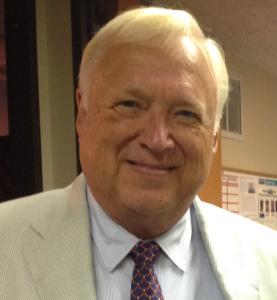
Ted Peters pursues Public Theology at the intersection of science, religion, ethics, and public policy. Peters is an emeritus professor at the Graduate Theological Union, where he co-edits the journal, Theology and Science, on behalf of the Center for Theology and the Natural Sciences, in Berkeley, California, USA. His book, God in Cosmic History, traces the rise of the Axial religions 2500 years ago. He previously authored Playing God? Genetic Determinism and Human Freedom? (Routledge, 2nd ed., 2002) as well as Science, Theology, and Ethics (Ashgate 2003). He is editor of AI and IA: Utopia or Extinction? (ATF 2019). Along with Arvin Gouw and Brian Patrick Green, he co-edited the new book, Religious Transhumanism and Its Critics hot off the press (Roman and Littlefield/Lexington, 2022). Soon he will publish The Voice of Christian Public Theology (ATF 2022). See his website: TedsTimelyTake.com. His fictional spy thriller, Cyrus Twelve, follows the twists and turns of a transhumanist plot.
▓
Notes
[1] Christian List, a philosopher at the London School of Economics, tries to make a distinction. He’s cited in Scientific American. “Free will and consciousness are conceptually distinct. Free will, as I define it, requires intentional agency, alternative possibilities, and causal control over our actions. Consciousness–especially phenomenal consciousness–requires the presence of subjective experience from a first-person perspective.” I submit that we find both consciousness and free will together in human experience. Free will is possible only from a first person perspective. “Conscious causation of behavior tends to elicit pro-free will judgments, even when the causation takes place deterministically,” says Joshua Shepherd in Experimental Studies.[2] A 25-year wager between a neuroscientist and a philosopher came to an end in 2023. As reported in Nature, in 1998, neuroscientist Christof Koch bet philosopher David Chalmers that the mechanism by which the brain’s neurons produce consciousness would be discovered by 2023. Despite investigating two hypotheses, the brain reductionists fell short of providing an explanation. One hypothesis proposed that it’s a ‘structure’ in the brain formed by a specific type of neuronal connectivity. The other proposed it arises when information is broadcast to areas of the brain through an interconnected network. Results from six independent laboratories didn’t perfectly match either hypothesis. Philosopher Chalmers was considered the winner of the bet.
[3] “Consciousness can be characterized by various phenomenal features like qualia and first-person perspective. In short, qualia describes the point of view and its what it is like of our experience. All your experience presuppose a specific point of view, your individual one, that is different from the one of other persons. This individually specific point of view is supposed to give your experience a specific quality, qualia. The first-person perspective refers to the fact that we can experience the world only from a first-person perspective while any experience remains impossible from a third-person perspective where we can only observe but not experience.” Source: (Northoff, 2013).
[4] “Materialism, of course, involves the creation of a total worldview out of the method intended by the seventeenth century thinkers to be used for only a portion of reality” (Griffin, 1998, p.14).
[5] What David Ray Griffin calls materialistic monism contains two theses. First, there is only one kind of actual entity, namely, material or physical. Second, what is called ‘mind’ is numerically identical with the brain so that there is no interaction between mind and brain. Accordingly, “there is no mind our soul in the sense of an actuality numerically distinct from the brain” (Griffin, 1998, p. 48).
References
Crick, F., 1994. The Astonishing Hypothesis: The Scientific Search for the Soul. New York: Scribners.
Griffin, D. R., 1998. Unsnarling the World-Knot. Berkeley CA: University of California Press.
Maximus, 1981. Two Hundred Texts on Theology and the Incarnate Dispensation of the Son of God. In: K. Ware, ed. Philokalia. London: Faber, pp. 2:114-284.
Metzinger, T., 2009. The Science of the Mind and the Myth of the Self. New York: Basic.
Murphy, N., 2006. Bodies and Souls, or Spirited Bodies?. Cambridge UK: Cambridge University Press ISBN 978-0-521-67676-2 pb.
Murphy, N. a. W. B., 2010. Did My Neurons Make Me Do It?. Oxford: Oxford University Press.
Northoff, G., 2013. “Brain and Self–A Neurophilosophical Account.” Child and Adolescent Psychiatry and Mental Health 7:28. https://doi.org/10.1186/1753-2000-7-28.
Peters, T., 2nd Ed, 2003. Playing God? Genetic Determinism and Human Freedom. London and New York: Routledge ISBN0-415-94248-0-415-94249-7.
Satel, S. a. S. L., 2013. Losing our Minds in the Age of Brain Science. Skeptical Inquirer 37:6, pp. 30-35.
Searle, J., 1986. Minds, Brains, and Science. Cambridge MA: Harvard University Press.
Stapp, H. P., 2017. Quantum Theory and Free Will. Switzerland: Springer.
Whitehead, A. N., 1925, 1997. Science and the Modern World. New York: Free Press.
Woollacott, M. H., 2017. Infinite Awareness. New York: Roman and Littlefield.



